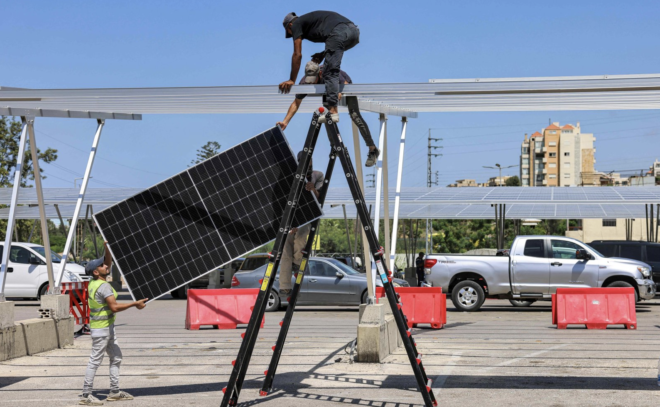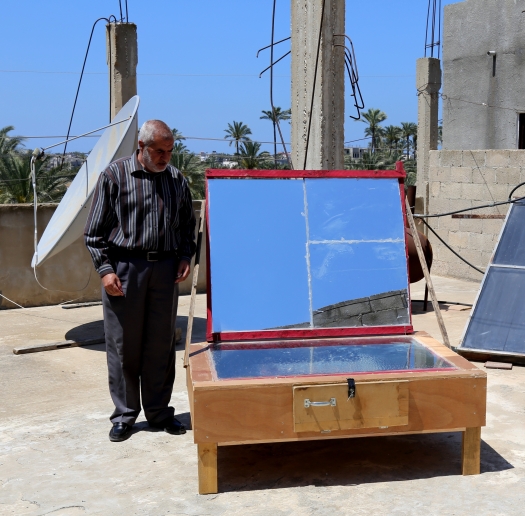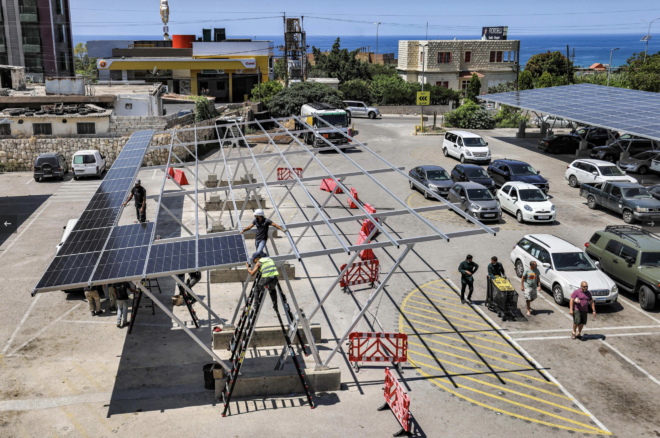Lebanon is facing a severe energy crisis forcing people to run private generators for switching on light bulbs and refrigerators. This is following decades of government corruption and an economic collapse in 2019.
In recent months those who are lucky may only get power for a couple hours a day.
But the Lebanese who can afford it have started to see the light at the end of the tunnel. Despite the high set up costs, Lebanese are starting to invest in private solar panel systems. Solar panels are driving the opium trade in Afghanistan, and they are driving Americans crazy when they can’t figure out the connecting to the grid — but as their Greek cousin Plato once said, necessity is the mother of invention.
“With the current conditions we are living in, solar energy is no longer an alternative – it’s a necessity. If we didn’t install panels, villages wouldn’t have any electricity,” said Elie Gereige, an engineer and volunteer who spoke to i24.
The state-run electricity company in Lebanon is responsible for 90 percent of Lebanon’s energy production, but it is running out of cash, leaving many without a source of reliable power. As wealthy countries like Canada and America now know, the conflict between Russia and the Ukraine is hurting the entire global village, doubling the cost of fuel to run cars and power stations.
According to i24, people are taking the responsibility into their own hands, turning to a solution that was once considered a luxury. Now they can keep the lights burning for 17 hours a day.

Credit AFP
Many Lebanese own diesel generators but they are too costly to run, plus they are loud and polluting. To afford the new panels, Lebanese have been selling their cars, land and jewellery. Similar stories were circulating last year in Syria.
But millions of people in the region are still are burning fuel in generators to survive. War or mismanagement in the Middle East has decimated the electrical grid.
Diesel generators are like national suicide
Experts call it national suicide from an environmental and health perspective, according to a report released by the AP:
“Air pollution from diesel generators contains more than 40 toxic air contaminants, including many known or suspected cancer-causing substances,” said Samy Kayed, managing director and co-founder of the Environment Academy at the American University of Beirut in Lebanon.
Greater exposure to these pollutants likely increases respiratory illnesses and cardiovascular disease, he said. It also causes acid rain that harms plant growth and increases eutrophication — the excess build-up of nutrients in water that ultimately kills aquatic plants.
Earlier last month DW reported on the new solar energy rush in Lebanon: Mohamad Mahmoud Hariri, a 43-year-old living in the nation’s third-largest city of Sidon, said while he had suffered power outages for years, things are far worse now than in the past.
“Without electricity, everything stops. I am convinced that things are going from bad to worse, and that the state cannot solve this problem,” he said.
Hariri said that electricity prices soared following the onset of the economic crisis, pointing out that monthly rates now equal or exceed the average monthly salary of many Lebanese.
He chose to invest in renewable energy by installing a solar panel system three months ago. Hariri paid $3,000 USD for the system, which allows him to consume around 10 amps of electricity in the morning and 3 amps at night. But in winter months, he will be forced to decrease consumption as the system produces less energy from cloud coverage and shorter days.
Banks have even begun offering loans to those looking to install solar power systems. However, not everyone has been able to afford solar energy, even though prices have dropped significantly over the past decade.
Prices range from $3,000 for a 5-amp system or $9,000 for a 20-amp system; prices that are out of reach for most Lebanese.
Even after installing such a system, people still needed diesel generators, as solar panels alone cannot supply the entire energy required by a household at all times.

We’ve been covering renewable energy solutions for the Middle East since 2007. Interim solutions for survival can include thinking creatively. How about solar powered cookers used by Gazans when the power goes off? Or applying for microfinancing through platforms like Kiva.



